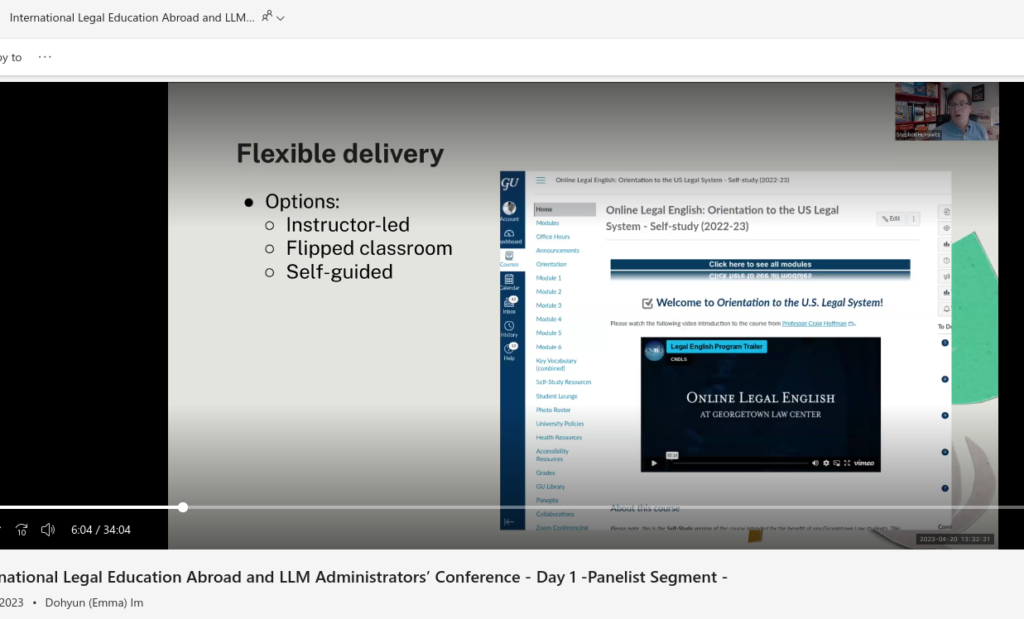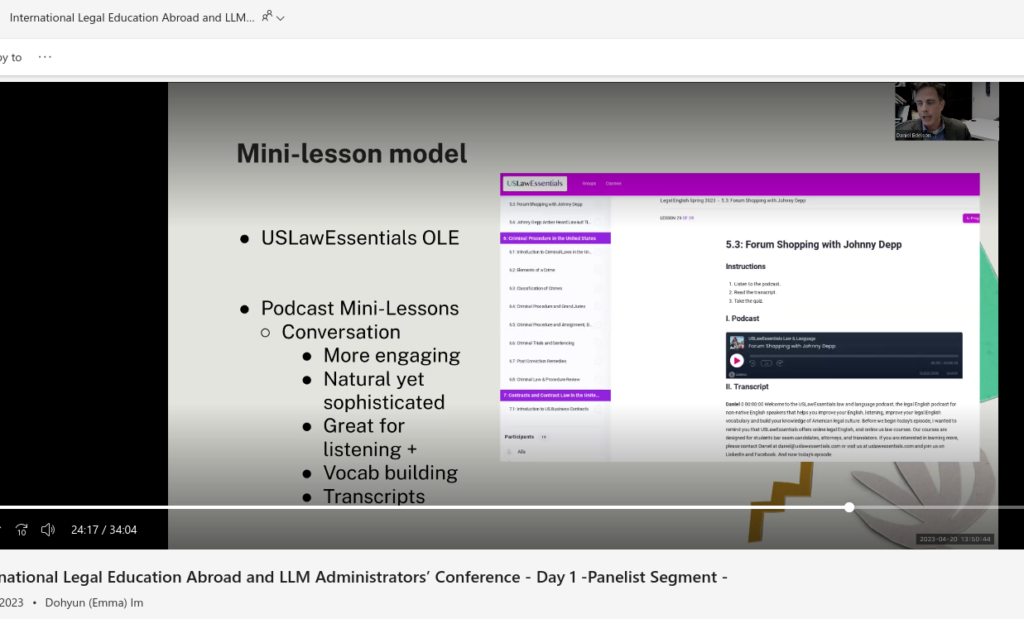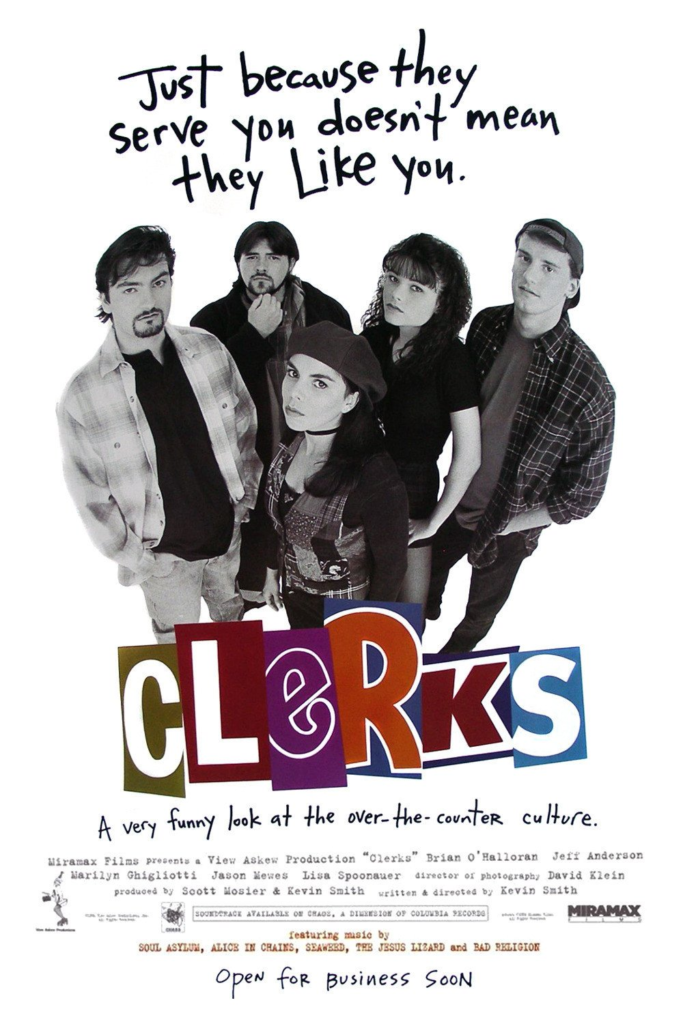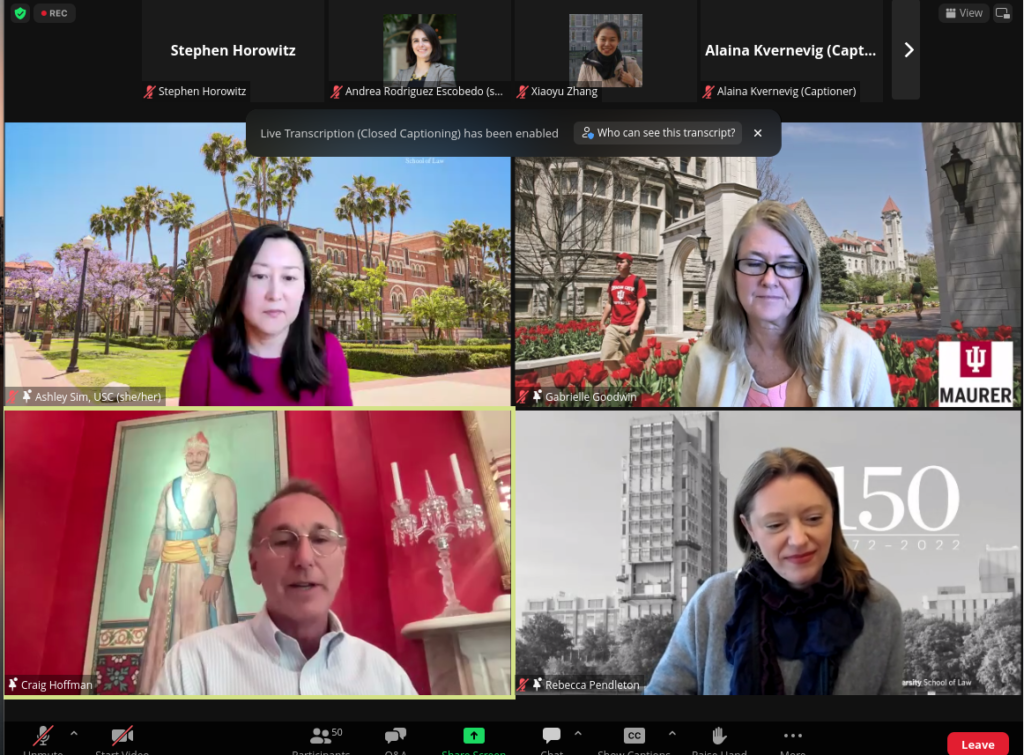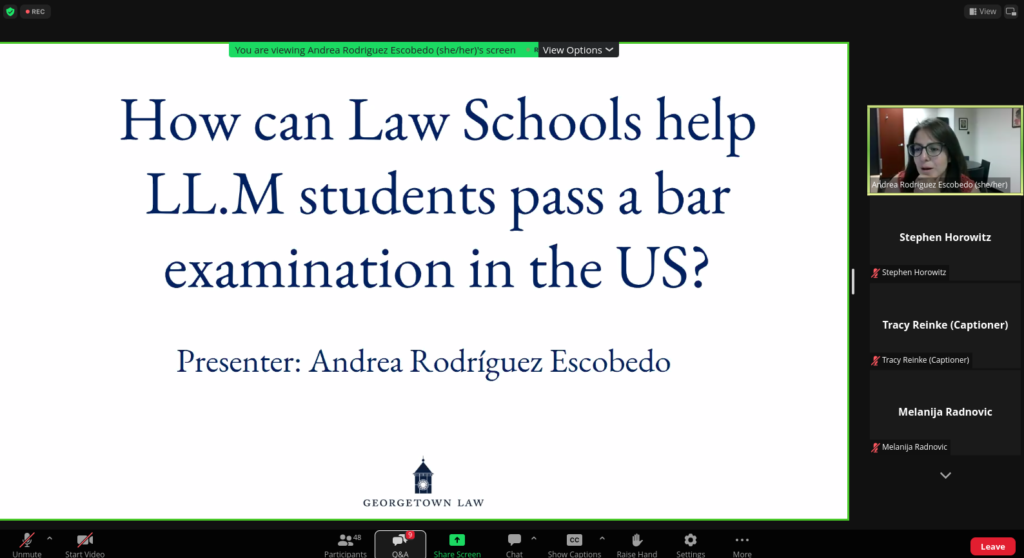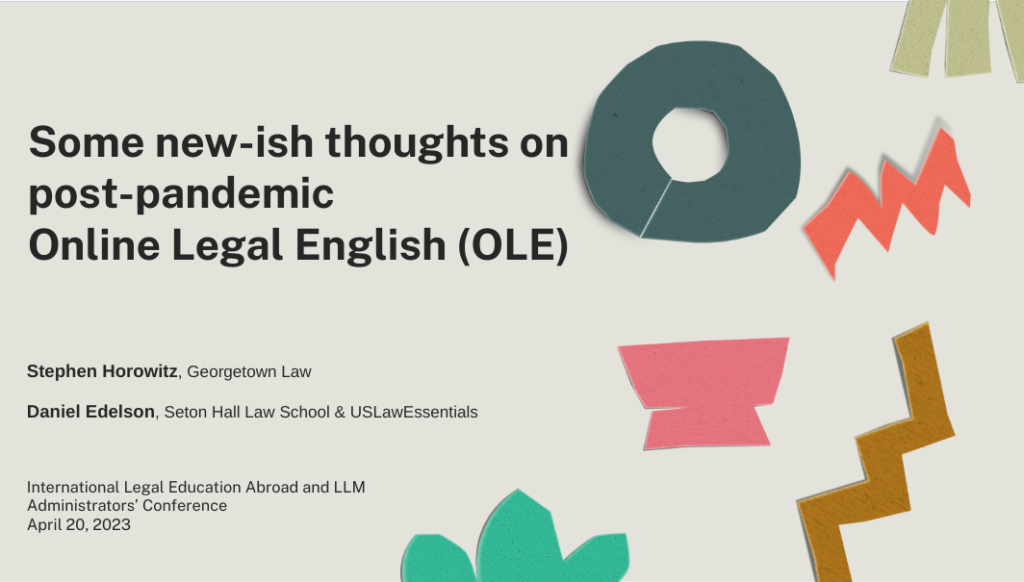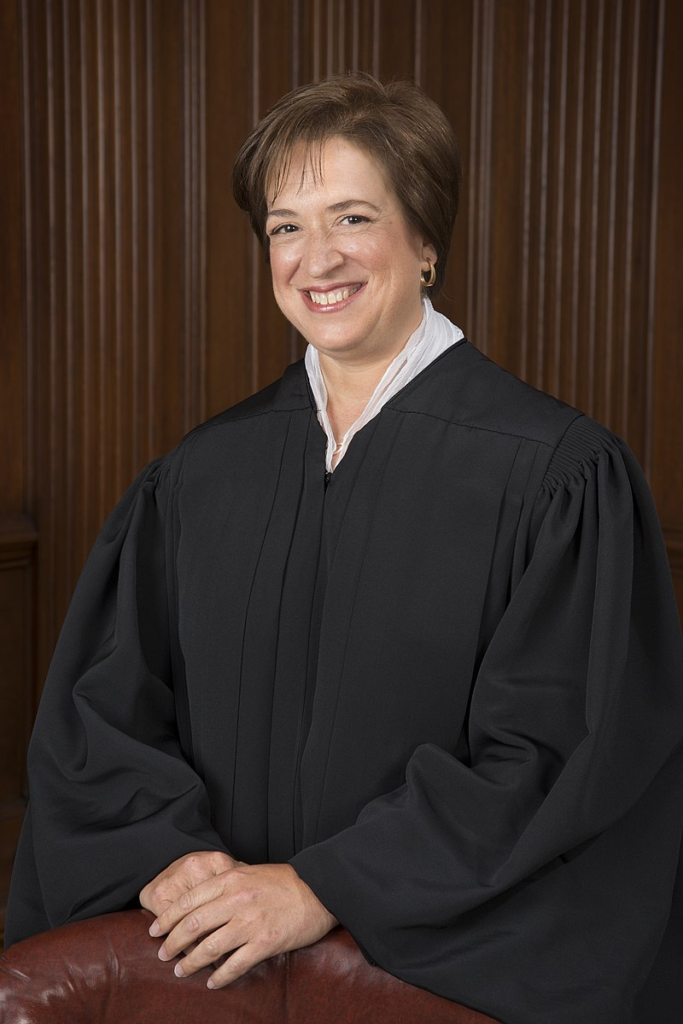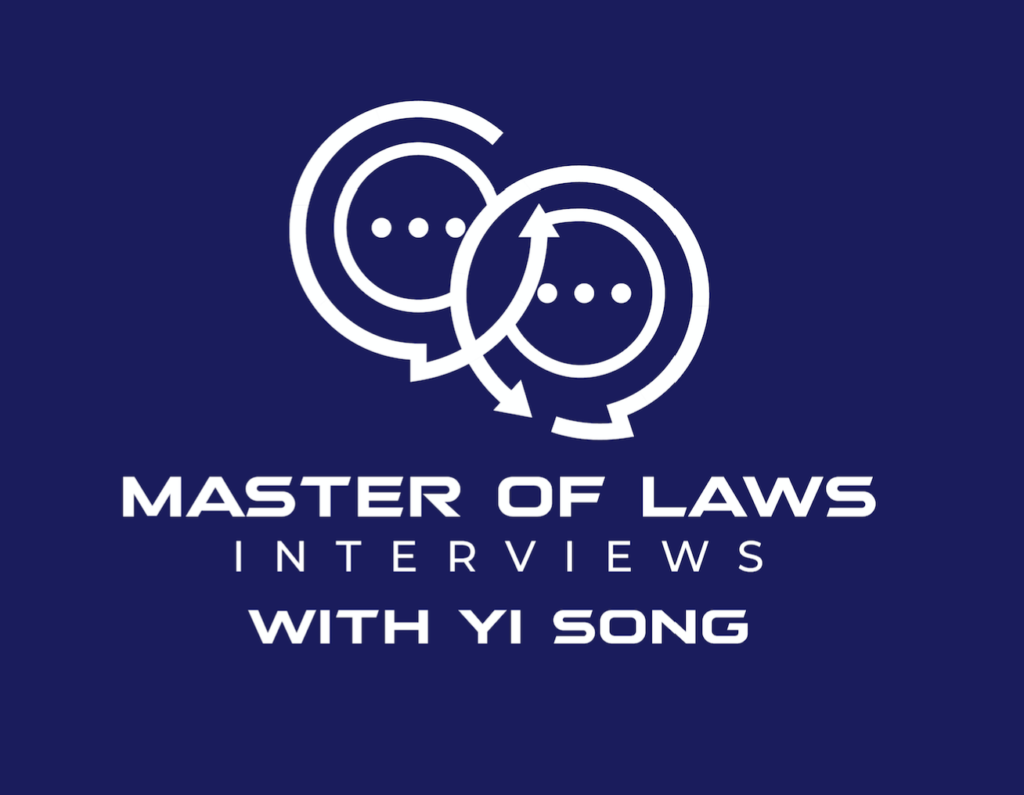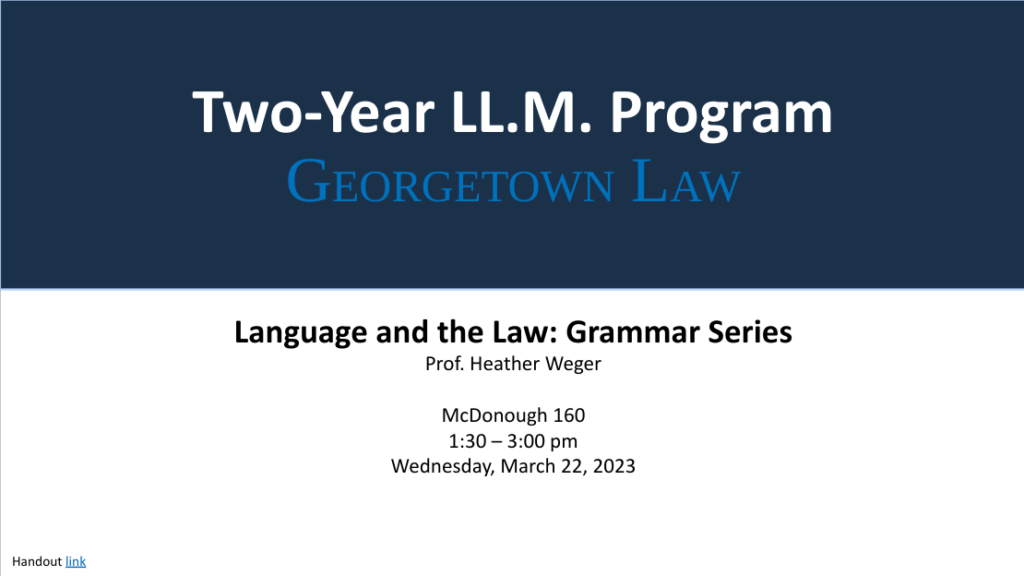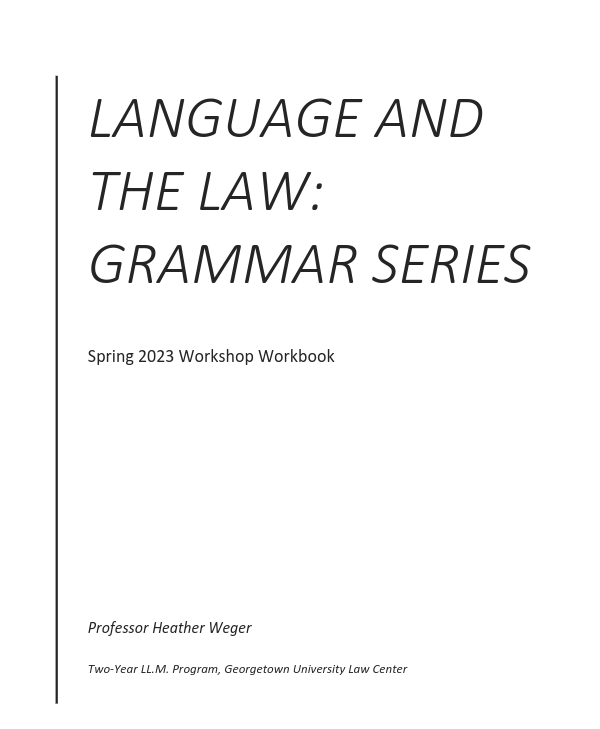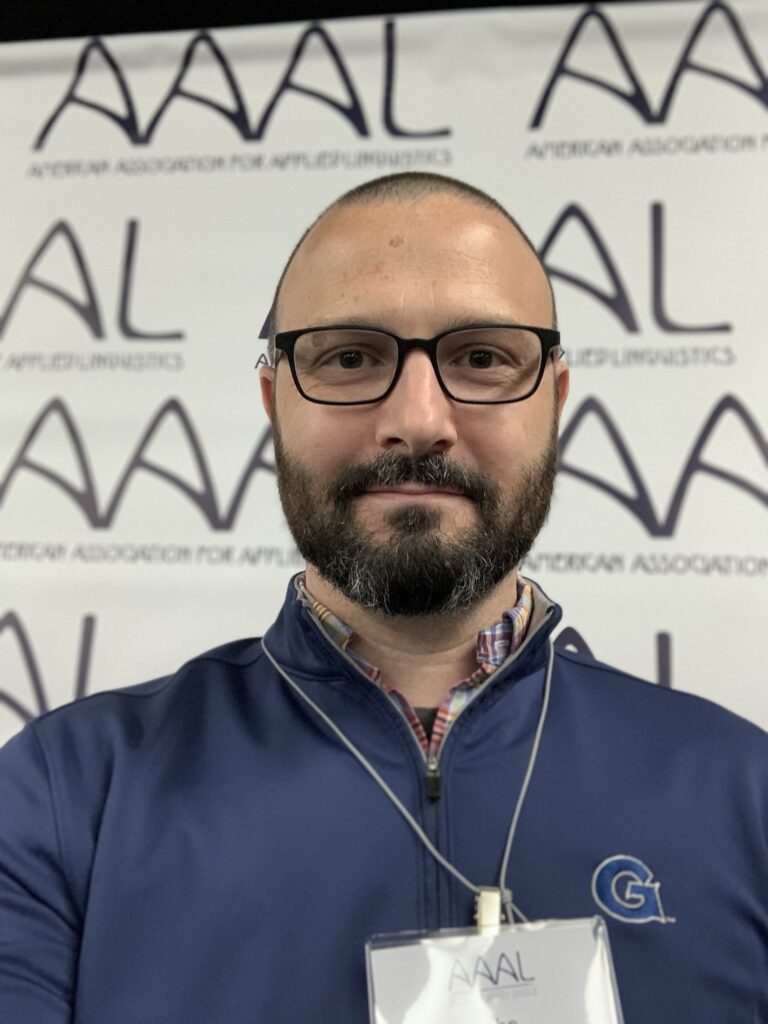Post by Stephen Horowitz, Professor of Legal English
Yesterday, Day 1 of the annual International Legal Education Abroad and LLM Administrators’ Conference hosted by American University Washington College of Law, Georgetown Law was represented on three different panels.
1. Craig Hoffman, founder of Georgetown Law’s 2-Year LLM Program (the first such program to exist), participated in a panel discussion titled “The Emergence of the Two-Year LLM: A Promising Alternative for Non-JD Law Programs” together with Ashley Sim (USC), Gabrielle Goodwin (Indiana University), and Rebecca Pendleton (Boston University.) The discussion, moderated by Prof. Pendleton, addressed the benefits and challenges of 2-Year LLM programs as well as changes over time.
2. Andrea Rodriguez Escobedo, Director of LLM Programs at Georgetown Law, presented on “Higher bar passage rate to attract more LL.M candidates: How can Law Schools help LL.M students pass a bar examination in the US?” A former Columbia LLM student herself, Andrea shared her and others’ research on LLM bar success and delved into the possible causes as well as potential solutions for support.
3. Stephen Horowitz, Professor of Legal English at Georgetown Law, together with Daniel Edelson, Director of Academic Success at Seton Hall Law and founder of USLawEssentials, gave a presentation titled “Some new-ish thoughts on post-pandemic Online Legal English (OLE.)” In it, we shared some examples of OLE content from the Georgetown Online Legal English course as well as from the St. John’s Law OLE course and the USLawEssentials’ OLE courses.
In particular, we focused on an approach we’ve been using called the “interactive textbook” model, which is a term we created to capture the feel of an asynchronous course that is set up sequentially and can be used as a self-guided course, but can also just as easily function as the text for an instructor-led course.
Continue reading “Georgetown Legal English at the 2023 ILEAC Annual Conference”

